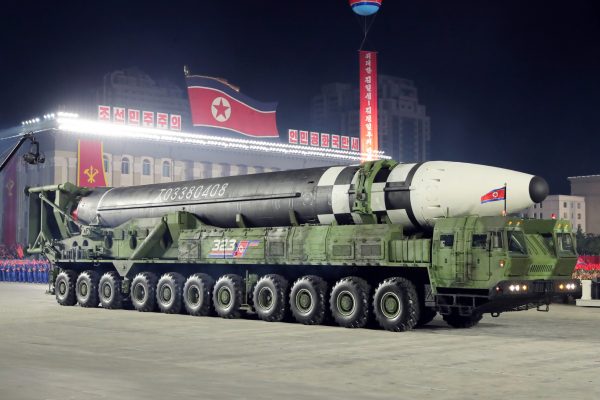
The leader of North Korea says the country’s longest ICBM test is “appropriate military action” against enemies
North Korea upgraded what it called the “world’s most powerful strategic weapon” by testing an intercontinental ballistic missile on Thursday. At the same time, Seoul warned Pyongyang that it could get missile technology from Russia to help with the war in Ukraine.
The KCNA state news agency reported that Kim Jong Un, the leader of North Korea, said the test was a message to enemies who have been a threat to the country’s safety.
“The test-fire is an appropriate military action that fully meets the purpose of informing the rivals, who have intentionally escalated the regional situation and posed a threat to the security of our Republic recently, of our counteraction will,” Kim was quoted by KCNA.
A lot of people around the world are angry and worried about North Korea’s move of 11,000 troops to Russia, with 3,000 of them being close to the western frontlines with Ukraine. This has led to North Korea showing its strength.
South Korea, Japan, and the US all quickly spoke out against the launch.
Seoul said the day before that military information suggested the North might test-launch an ICBM or do a seventh nuclear test around Tuesday’s U.S. presidential election to show how strong its military is getting.
Head of study on North Korea’s military at the state-run Korea Institute for Defense Analyses, Shin Seung-ki, said that the launch was likely to test an existing ICBM’s better booster performance, possibly with help from Russia.
“North Korea will want to keep getting help like this, because it saves times and costs while improving performance and upgrading the stability of weapons system,” he added.
Shin said it could also be Pyongyang’s way of responding to pressure over its peace talks with Russia.
“The intention may be to show that it will not bow to pressure, that it will respond to strength with strength, and also to seek some influence on the U.S. presidential election.”
South Korea says that the launch early Thursday morning was the North’s longest ballistic missile test. The rocket flew for 87 minutes.
KCNA said that the test set new records for how well its missiles could work.
The missile took off from a place close to the city of the North and went very high. It landed about 200 km (125 miles) west of Japan’s Okushiri island, which is off the coast of Hokkaido.
The government of Japan said it flew 1,000 km and hit an altitude of 7,000 km (4,350 miles).
The so-called “lofted trajectory” of a projectile flying at a highly raised angle is meant to test its thrust and stability over much shorter distances than its intended range. This is done in part for safety reasons and to avoid the political fallout that would come from firing a missile far into the Pacific.
Tests of North Korea’s last ICBM, called the Hwasong-18, took place in December 2023. Solid fuel was used to power it, and it was fired from a road launcher at a very steep angle. It flew for 73 minutes, which would give it a range of 15,000 km on a typical path.
At that range, you can reach anywhere in the continental United States.
Thursday, South Korea said it would start limiting the export of materials that North Korea needs to make solid-fuel rockets.
When asked about the missile launch, Lin Jian, a spokesman for China’s foreign ministry, said, “China has always believed that peace and stability, as well as promoting a political solution to the peninsula issue, are in the best interests of everyone.”
North Korea’s most recent test happened just hours after Lloyd Austin, the U.S. secretary of defense, and Kim Yong-hyun, the secretary of defense for South Korea, met in Washington, D.C., to criticize North Korea’s sending troops to Russia.
Putin and North Korea haven’t said anything about the deployment, but Russia’s U.N. ambassador, Vassily Nebenzia, asked on Wednesday why North Korea and other Russian friends couldn’t help Moscow in its war against Ukraine when Western countries say they have the right to help Kyiv.
South Korea said that the deployment directly threatened its security because the North would learn a lot about how to fight in modern wars and would likely get “technology transfers” from Moscow in areas like tactical nuclear weapons, ICBMs, ballistic missile submarines, and military reconnaissance satellites.
All Categories
Recent Posts
Tags
+13162306000
zoneyetu@yahoo.com



